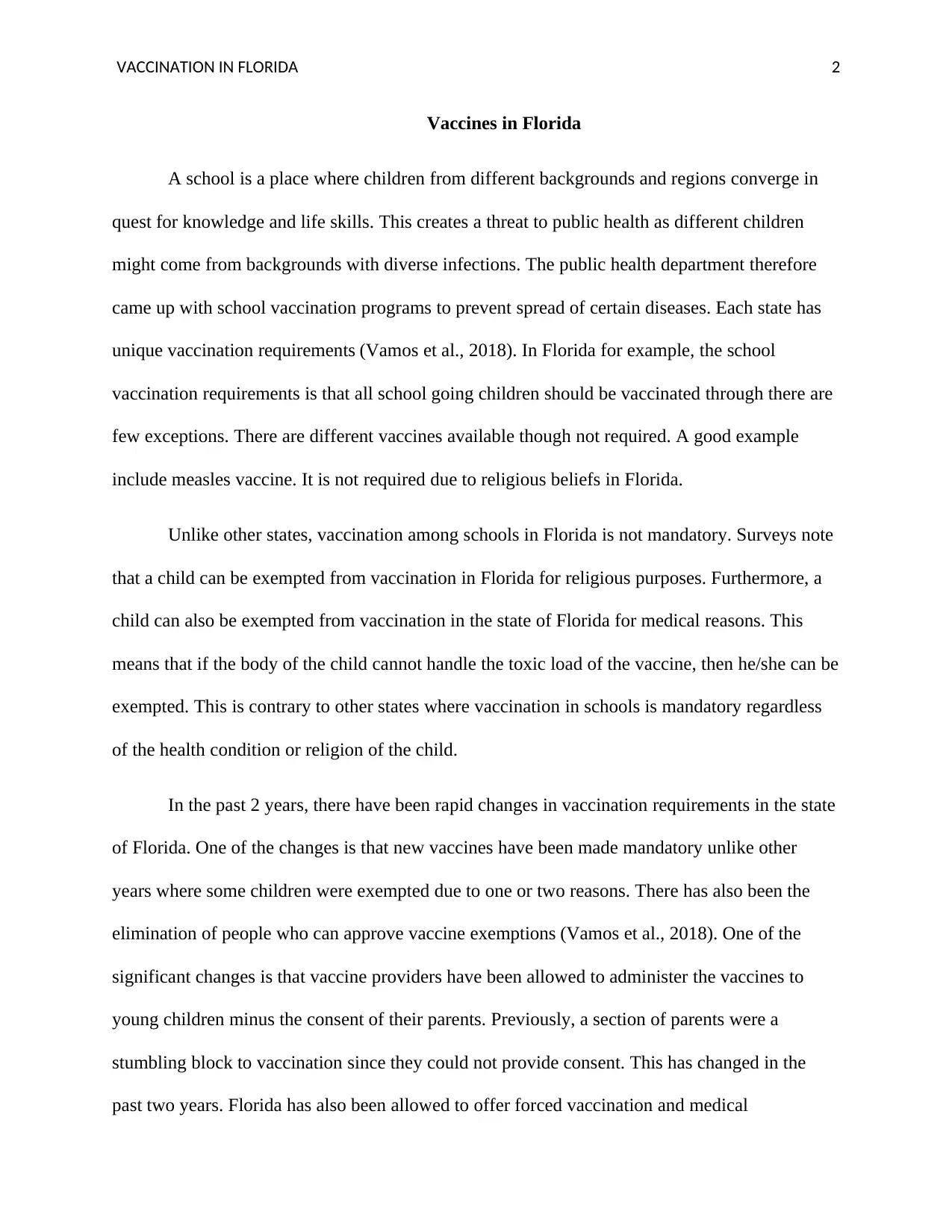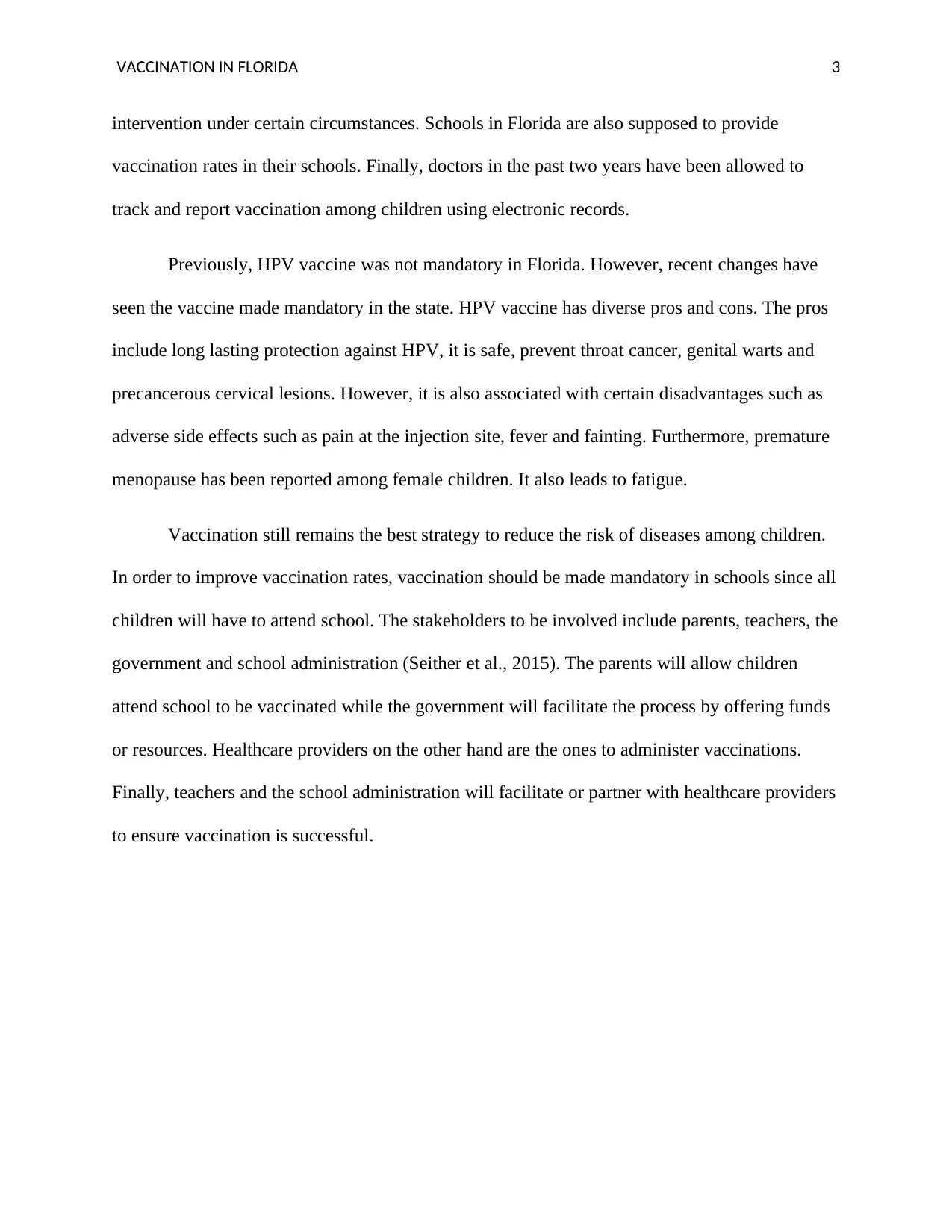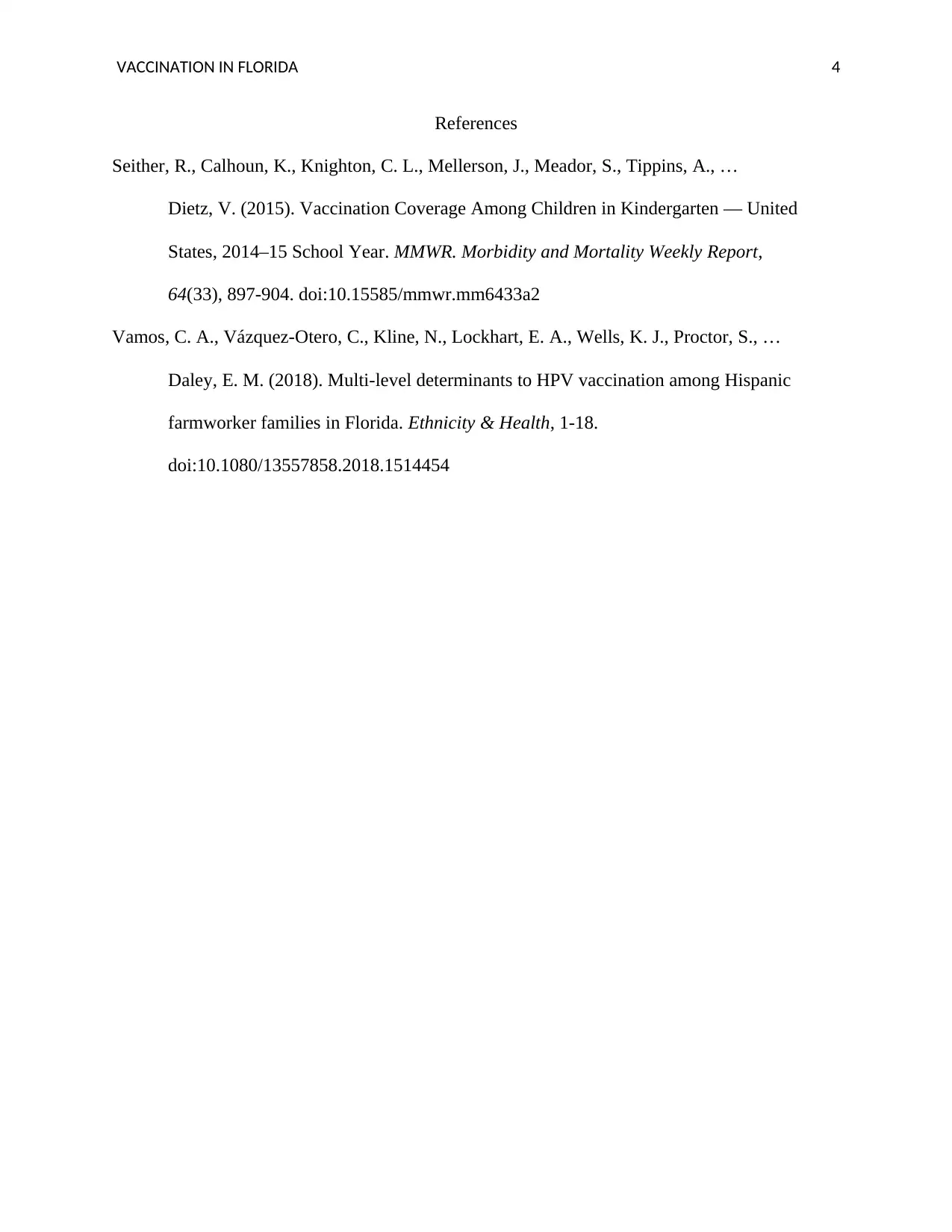Examining Vaccination Policies,Mandates and HPV Vaccine in Florida
VerifiedAdded on 2023/03/30
|4
|647
|224
Essay
AI Summary
This essay examines the school vaccination requirements in Florida, highlighting the unique aspects of the state's policies compared to others. It discusses the exemptions allowed for religious and medical reasons, the recent changes in vaccination requirements, including the elimination of certain approval processes for exemptions and the allowance of vaccine providers to administer vaccines to young children without parental consent. The essay also addresses the mandatory status of the HPV vaccine, outlining its pros and cons, and suggests making vaccination mandatory in schools to improve vaccination rates, involving parents, teachers, the government, and healthcare providers in the process. Desklib provides access to similar essays and study resources for students.
1 out of 4









![[object Object]](/_next/static/media/star-bottom.7253800d.svg)